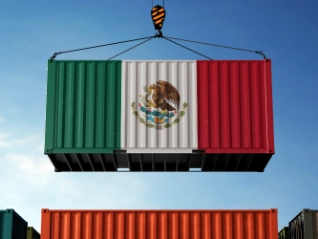Our Atradius Exclusive series will provide you with the latest insights from Atradius Economists, annual reviews of corporate payment practices, sector performance and more.

Reports and whitepapers from our industry experts

Latest news and insights

Latest blogs

Helpful guides at your fingertips

Your questions answered

Examples of high quality credit management processes and practices

Success stories from our diverse range of clients
Industry growth slows as global trade applies the brakes


Can South Africa's GNU party overcome tensions and structural challenges to unlock GDP growth?

US tariffs, geopolitics and lower demand trigger a contraction of global automotive production in 2026

Tari...

Pharmaceuticals businesses throughout the world are reviewing their operational and...

Chemicals production growth projected to slow in 2025/2026 due to US tariffs

Trade tensions trigger higher insolvencies
Viewing 7 out of 208
This year, Atradius celebrates a remarkable milestone: a century of operations in the Netherlands.


Tariffs and tight margins are...

Thanks to this partnership, our clients in Spain can become sellers on Alibaba.com’s B2B marketplace without paying an entry fee

Europe has committed to a new era in...

Trade tensions, AI investment and geopolitical shifts dominate the global trade agenda. The key takeaway: business must...

The US President’s latest tariff threat exposes the weaponised interdependence that has become a flashpoint for...

Navigating global payment risk in a year of rising insolvencies and shifting customer behaviour
Viewing 7 out of 57







Viewing 7 out of 26
Understanding why credit insurance provides broader coverage, strategic risk management and financial stability compared...


How credit insurers evaluate risk and determine appropriate credit limits

Explore how surety bonds and bank guarantees work, their similarities and differences, and what they mean for...

Explore the trade-offs between credit insurance and self-insurance to protect cash flow and...

Globalisation makes market expansion inevitable, but entering new territories remains a complex and...

Credit...

Viewing 7 out of 32
- What is trade credit insurance?
- What is credit risk?
- Why credit management is important?
- What is business insurance?
- SME Insurance Singapore
- What is debt recovery?
- What is export credit insurance?
- What is political risk insurance?
- How much does credit insurance cost?
- How can I reduce DSO?
- How can I insure my export trade credit?
- How do you know if a business is failing?
- Why do traders take out credit insurance?
Every customer is a...


Atradius supports Park Polymer's...

With the backing of Atradius’s resources, EnCom Polymers has been able to expand business with existing customers and go...

BVV GmbH grew internationally and recognised risks such as companies on the brink of insolvency in plenty of time to mitigate the...

Atradius Surety has enabled Vinci Construction France to expand their sources of finance beyond their...

How we are part of Continental Banden Groep B.V.'s business process, minimising risk and supporting sales

Ben Green, President and Owner at...
Viewing 7 out of 8
Omron has achieved sustainable growth while navigating the uncertainties of China-US trade relations and regional manufacturing transformation.


FERM offers competitive payment terms and limits their credit risk to developing countries by using Atradius Dutch State Business (DSB) and the DDGF.

El Ganso credits our support in helping the fashion brand grow from a domestic-focused Spanish startup to a successful international business.

Janson Bridging uses export credit insurance from Atradius Dutch State Business (DSB) to offer favourable credit terms to customers located in emerging...

Late payers prompted content marketing agency KMOdynamoo to take out an Atradius credit insurance policy and has resulted in better debtor management.

Calidad Pascual partners with international credit insurance firm Crédito y Caución Atradius to gain additional knowledge of international markets.

By providing open dialogue, insight and valuable credit information we helped Brook Green Supply improve their internal credit...
Viewing 7 out of 9
Case study
Metalco Inc.: Driving new business with quick communication
Ben Green, President and Owner at Metalco Incorporated in Chicago, Illinois, explains how Atradius Trade Credit Insurance has helped him secure new business confidently.
Explore
































